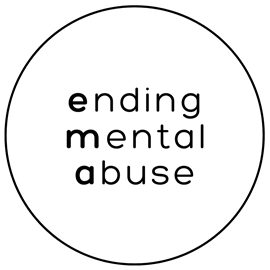Mental and psychological abuse, also known as emotional abuse, is a form of harm inflicted on individuals through non-physical means, with the primary aim of causing emotional distress, undermining self-esteem, and exerting control over the victim
This type of abuse can occur in various settings, including intimate relationships, families, workplaces, and institutions, and it can manifest in numerous ways.
Disturbing consequences for victims
Mental and psychological abuse can have severe and long-lasting effects on the victim’s mental health, leading to anxiety, depression, post-traumatic stress disorder (PTSD), and other psychological disorders. It can also undermine the victim’s confidence, self-esteem, and ability to trust others, making it difficult for them to establish healthy relationships in the future.
On a global level, psychological abuse is a pervasive issue that transcends cultural, social, and economic boundaries. It occurs in both developed and developing countries, affecting individuals of all ages, genders, and backgrounds. Efforts to combat psychological abuse require raising awareness, providing support services for victims, implementing legal protections, and promoting healthy relationship dynamics based on respect, empathy, and equality.
The list of abuse is long. However, below you can read about the most common ones.
Verbal Abuse
This includes insults, threats, constant criticism, yelling, and humiliating remarks, aimed at belittling the victim and diminishing their self-worth.
Constant Criticism
The abuser consistently puts down the victim, criticizes their thoughts, feelings, and actions, often making them feel inadequate or worthless.
Manipulation
This can include gaslighting (making the victim doubt their own sanity or perception of reality), guilt-tripping, or using other tactics to control the victim’s behavior or emotions.
Gaslighting
Gaslighting is a manipulative tactic where the abuser denies or distorts the victim’s perception of reality, making them doubt their own memory, perception, and sanity.
Economic and Financial Abuse
Economic violence, also known as economic abuse, is a form of control or manipulation in which one person exploits another’s financial resources or undermines their economic independence. This can take various forms, such as restricting access to money, controlling all financial decisions, sabotaging employment or education opportunities, or refusing to contribute financially to the household while expecting the other person to cover all expenses.
Isolation
The abuser may try to isolate the victim from friends, family, or support networks, making them dependent on the abuser for validation and support.
Threats and Intimidation
This could involve threats of harm to the victim, their loved ones, or themselves if the victim doesn’t comply with the abuser’s demands.
Humiliation and Public Shaming
The abuser may belittle or embarrass the victim in public or private settings, undermining their self-esteem and confidence.
Blame-Shifting
The abuser refuses to take responsibility for their actions and instead blames the victim for any problems or conflicts in the relationship.
Emotional Neglect
Ignoring the victim’s emotional needs, dismissing their feelings, or refusing to show empathy or compassion.
Control
The abuser exerts control over various aspects of the victim’s life, such as finances, daily activities, or decision-making, leaving the victim feeling powerless.
Withholding Affection or Approval
The abuser may withhold love, affection, or validation as a form of punishment or manipulation.
Invalidation
Dismissing or minimizing the victim’s feelings, experiences, or concerns, making them feel like their emotions are not valid or important.
Intimidation
Intimidation tactics, such as glaring looks, aggressive gestures, or destroying property, are used to instill fear and compliance in the victim.
Stalking
Stalking is a pattern of behavior where an individual repeatedly harasses or monitors another person, often causing fear or distress. This behavior can include following someone, unwanted communication, surveillance, and other intrusive actions intended to intimidate or control the victim. Stalking can occur in person or through various forms of technology, such as phone calls, emails, or social media messages. It is a serious crime and can have significant psychological and emotional effects on the victim.
It’s important to note that each situation is unique, and not all forms of behavior in a relationship constitute abuse. However, if you or someone you know is experiencing any of these signs, it’s crucial to seek help and support from trusted friends, family, or professionals. There are resources available to assist individuals in leaving abusive situations and rebuilding their lives in a safe and healthy environment.
